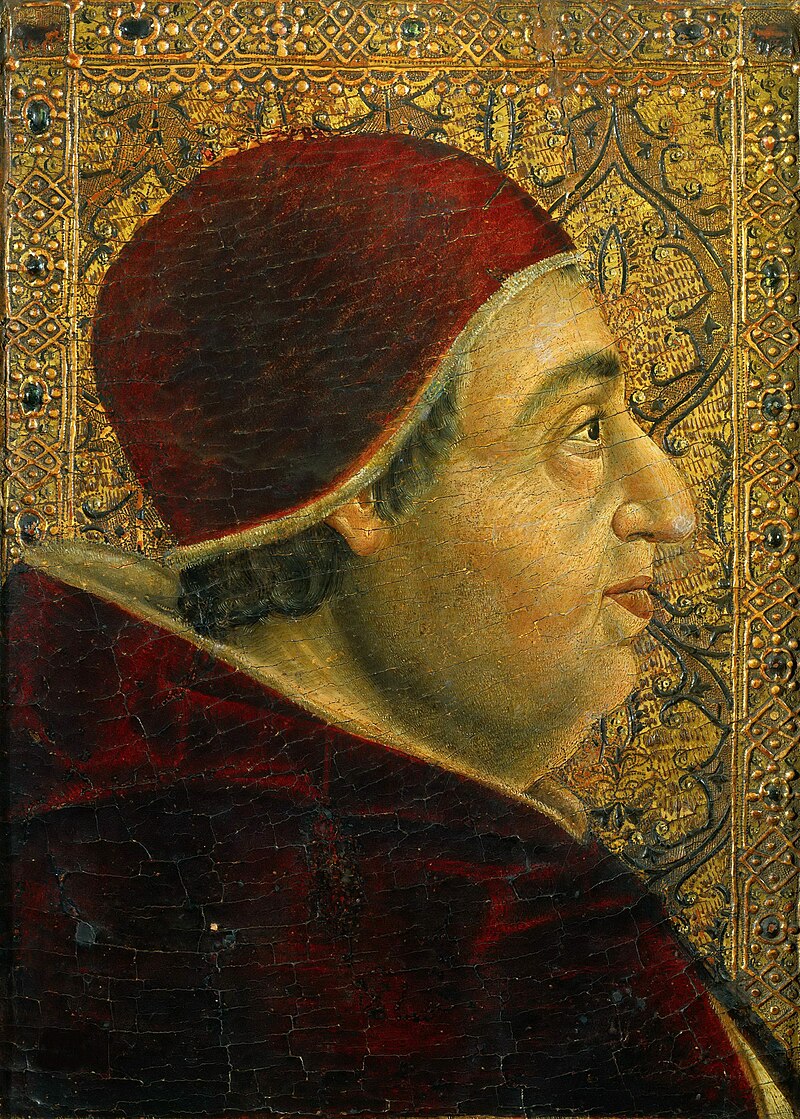
The Western Schism (also known as Papal Schism, The Great Schism, Schism of 1378) was a period in European history between 1378 and 1417 during which two and sometimes three people claimed to be the legitimate pope. The Great Schism began after several cardinals argued that the election of Pope Urban VI in 1378 had been coerced by a hostile mob in Rome. The cardinals subsequently elected a different, competing pope, Clement VII. Different rulers in Europe supported one of the two popes, usually due to political expediency more than religious sentiment or legal arguments. The Great Schism eventually ended with the election of a single pope, Martin V, in 1417; however, the power of the papacy was dealt an irrevocable blow.

Part of the prominent Medici family, Pope Leo X was bishop of Rome from 1513 to 1521. He was the last non-priest (only a deacon) to be elected Pope. He is known for granting indulgences for those who donated to reconstruct St. Peter's Basilica and his challenging of Martin Luther's 95 Theses. He was the second son of Lorenzo de' Medici, the most famous ruler of the Florentine Republic, and Clarice Orsini. His cousin, Giulio di Giuliano de' Medici, would later succeed him as Pope Clement VII (1523–34).

John Calvin was one of the most significant theologians of the Protestant Reformation of the sixteenth century and Calvinism became the most dynamic Protestant religion of the seventeenth century. Calvinism's success could be attributed to a variety of reasons including the perceived need for a thorough cleansing of the Catholic Church from its state of corruption and Calvin's rules for a godly life being clear and succinct as opposed to those of the Roman church. Additionally, the tenet of predestination was not perceived as fatalistic by Calvin or Calvinists. While Calvin stated that no one could know whether they were a member of the elect achieving salvation, it was believed one's success was evidence of God's grace.

Born into the Borgia family, Pope Alexander VI was pope from 1492-1503 and was the father of eight or, possibly, nine children including Cesare, Giovanni (Juan), Lucrezia, and Gioffre (Goffredo). During his papacy, he used his position to further his family into prominent positions including his appointment of Alessandro Farnese (brother to his mistress, Giulia) to cardinal. Alessandro Farnese would become Pope Paul III. He was a known patron of the arts, encouraged the development of education, and demonstrated benign treatment of Jewish people. During both Spain and Portugal's expulsion of Jewish people from their countries, Alexander VI allowed for their immigration to the Papal States.

Out of his own personal struggle and his conflict with the Church, Luther developed a theology and a religious movement that rejuvenated the Christian faith and had a profound impact on the social, political, and religious thought of Western society. He was the seminal figure of the Protestant Reformation, and his theological beliefs form the basis of Lutheranism. Luther taught salvation and, consequently, eternal life are not earned by good deeds; rather, they are received only as the free gift of God's grace through the believer's faith in Jesus Christ as redeemer from sin. His theology challenged the authority and office of the pope by teaching the Bible is the only source of divinely revealed knowledge, and opposed sacerdotalism by considering all baptized Christians to be a holy priesthood.

Pope Clement VII was head of the Catholic Church from 1523 to 1534 and a member of the Medici family. He forbade the divorce of Henry VIII which would lead to England's separation from the Catholic Church and establishment of the Church of England. He commissioned Michelangelo's painting of The Last Judgment in the Sistine Chapel (1533) and approved of Copernicus' theory of the Earth revolving around the sun.

